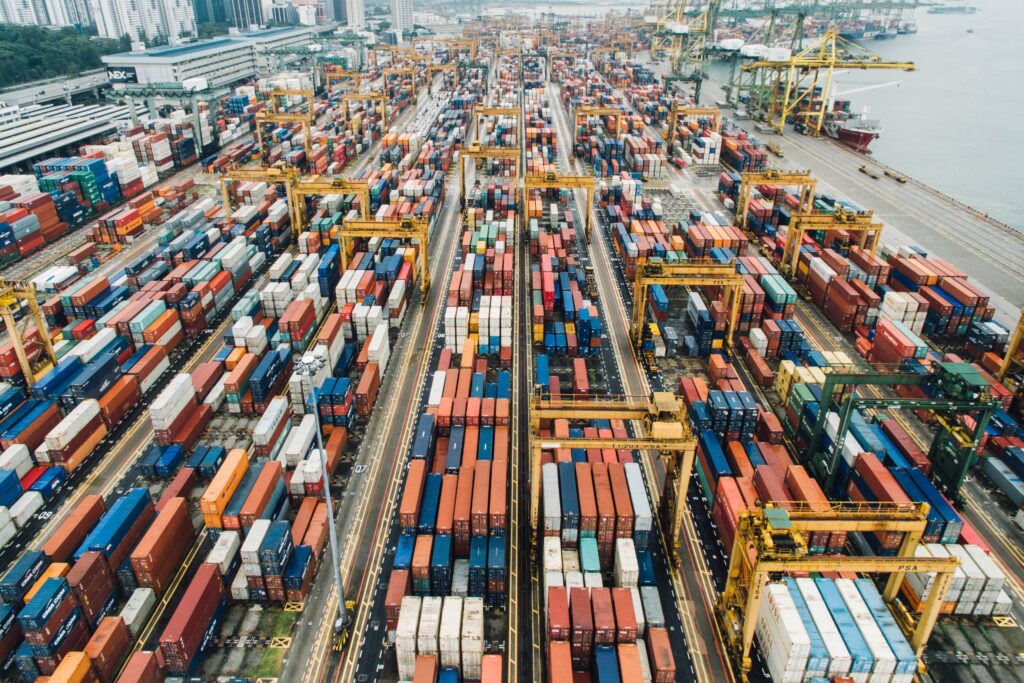A new international non-profit association has launched to improve the trading process for the commodities industry through the adoption and standardization of technology. The Global Commodity Technology Association (GCTA) is now open to participants in the global commodities supply chain involved in ocean-bound agricultural trade. This includes growers, processors, logistics providers, and trading houses, who will form a working group to support the industry’s ongoing efforts to achieve greater efficiency through digitization. Association membership, which will incur a typical fee, will be limited initially to selected entities in order to create a small but functional cross-representation of the industry’s interests. Fees will go towards selecting technology vendors, providing software, and other costs associated with its mission.
For GCTA founder Julie Lerner, the idea for a new tech-driven association was born out of frustration.
“For me, the impetus was the lunacy of blockchain. You see digital asset holdings and so many others talking about how they will save the world with blockchain, save billions, end poverty, fix food security. But when you read it as a commodity trader, you think what do you mean when you say ‘put it on the blockchain?’” Lerner tells AFN. “All of us who trade know that when you load a vessel at port, you are loading documents, usually shoving them into an envelope and sending them to the end buyer.”
The Grim Reaper of Blockchain
Lerner describes herself as bullish on the theoretical concept of blockchain, but believes that we are more than a decade away from effective implementation in physical commodities due to the severity of the industry’s antiquated practices.
“We don’t even have one document that is standardized and ready for digitization,” she says. “Today, we can do blockchain but only for PDFs and I question the benefit of that if the destination buyers still demand hard copy documents like a certificate of origins.”
Blockchain has been touted as a critical piece of ag’s digital future, with Alibaba and Bayer recently announcing that they are teaming up to create a blockchain-based ag tracking system, while GrainChain is using blockchain to link up Honduras’ disjointed coffee industry. In the livestock industry, Wyoming is hoping blockchain can help ranchers using sustainable management practices on their ranches can get a premium for their beef.
Unsurprisingly, many people began referring to Lerner as the ‘Grim Reaper of Blockchain,’ but the moniker has not phased her mission to create a global working group of people who want to see the industry embrace more technology in a unified manner.
Lerner is also the founder and CEO of PanXchange, a physical commodities OTC market structure solutions provider for diverse sectors including industrial hemp, frac sand, and East African commodities, which gives her a realistic perspective of where the industry is headed and what it may need in terms of tech.
She isn’t alone in her crusade for harmonious tech adoption. Dave Lehman, an industry veteran with over 30 years of experience, has joined as managing director. He’s played key roles in commodity market research and education at some of the world’s leading derivatives marketplaces. Prior to forming his own firm, he was managing director, research and product development at CME Group – Chicago’s commodities exchange. He also held multiple senior roles, including chief economist at the Chicago Board of Trade before its acquisition by CME Group.
“The system is currently less efficient. There’s a cost to handling this paper documentation. There’s a cost when those documents aren’t standardized across different firms or commodities,” he tells AFN. “Our vision is to create a trade association that will bring key players in this market together in a small working group that will actually identify where digital technologies should be deployed first, what their biggest pain points are, where the low hanging fruit may be, and what we can do to create efficiencies and lower costs for these firms right away.”
But first, standardizing paperwork
An immediate painpoint that the duo has identified is the need to standardize the bill of lading, which is a detailed list of a shipment of goods. Think of it as a receipt that the carrier gives to the person consigning the goods. Weights and lab test results should also be standardized as well as grading, they add. One obstacle looming in their way is the industry’s continued preference for original paper documents, such as a certificate of origin. It isn’t unsurmountable by their estimation; it’s simply a matter of slowly changing industry habits starting with the purchasing side.
As a testament to the messy tech frustration plaguing the global commodities trade industry, ADM, Bungee, and Cargill announced last year a joint venture to harmonize post-trade practices. Glencore and COFCO later joined the effort. The partnership is initially focused on developing technologies to automate grain and oilseed post-trade execution processes, which will hopefully reduce costs and resources needed to move documents around the globe. In the long run, the initiative hopes to drive greater security, reliability, efficiency, and transparency by digitizing manual, paper-based processes tied to contracts, invoices, and payments, with a more modern, digitally based approach.
Lehman doesn’t see this as a threat to GCTA’s work, but as an affirmation of the need for a coordinated industry-wide effort. And in lieu of developing technologies in-house, GCTA plans to take a more liaison-focused approach.
“We have no political agenda,” she says. “If the industry likes what the big six are doing and building now, we will help smooth out any kinks. We’ve heard of other initiatives like the ePhyto certification from the UN. If the industry likes that, we will do what we can to help them adopt that. But the emphasis for us is industry-wide adoption, not just focusing on those big six players.”
GCTA will initially focus on the priorities of the trading and freight forwarding communities. Members will participate in monthly meetings, which may take place in the US, Geneva or Singapore. Some of the threshold issues it hopes to tackle are determining which commodities can be addressed as a group, determining which pain points are the highest priority, and identifying the issues that industry players face with legacy back-office systems and new commodity trading, transaction, and risk management platforms.
Some of these steps may be easier said than done, which Lerner and Lehman readily acknowledge. But what they aren’t lacking is a universal sense that something needs to change.
“Dave and I consistently hear that this is the right time, that it’s needed, and that no one is doing this,” Lehman says. “We opened an escrow account and we are holding until we get a quorum. If we don’t get a quorum, we will conclude that it’s a neat idea but no one is ready to invest. I think the biggest thing we are talking about at this point is getting everyone to hold hands and jump.”





